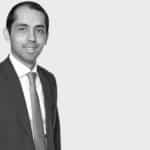
Marie Dzanis, head of Northern Trust Asset Management for Europe, Middle East, Africa said this year will bring a focus on sustainable investing, alongside factor exposures and using cash as a strategy.
Dzanis spoke at a media briefing in London this week and said all pensions in continental Europe include sustainability in their mandate discussions.
“In the UK and Ireland the demand is being driven by the young for fossil free-fuel funds. That is a focus of our product development,” Dzanis added.
She continued that ESG discussions have also evolved hugely in the Middle East in the past five years.
“We believe this is a secular and permanent trend as you do not have to compromise on returns,” said Dzanis.
The US has lagged behind Europe in investing in environmental, social and governance strategies but Dzanis said one in five dollars went to ESG funds last year. “We expect exponential growth in the US,” she continued.
Aniket Shah, head of sustainable investing at OppenheimerFunds agreed in a blog that professional wealth managers will take a more active role in ESG integration, especially in the US.
“The upcoming wealth transfer between baby boomers and millennials, which will see roughly $30 trillion change hands in North America alone, will present an opportunity for these wealth managers to integrate ESG into their practices, thereby helping to ensure capital markets become more proactive about ESG factors,” he added.
Shah wrote that sustainable investing has moved from an outlier to a mainstay of the investment management industry during the last 15 years.
OppenheimerFunds examined 10 trends that will shape the future state of ESG investing in a recent white paper.
The trends include investors evaluating natural capital, the real-economy impact of an investment on the physical environment; and human and social capital, social structures and conditions; as well as longer-term transformations that are needed for sustainable development and low-carbon energy transitions.
“The financial industry has a significant way to go to ensure that the worlds’ savings is invested in a way that is aligned with broader sustainability of our environment and social conditions,” added Shah. “To move forward in a meaningful way, the industry will need to approach these issues with even more seriousness of thinking, openness toward collaboration, and clarity of intention than has happened to date.”








